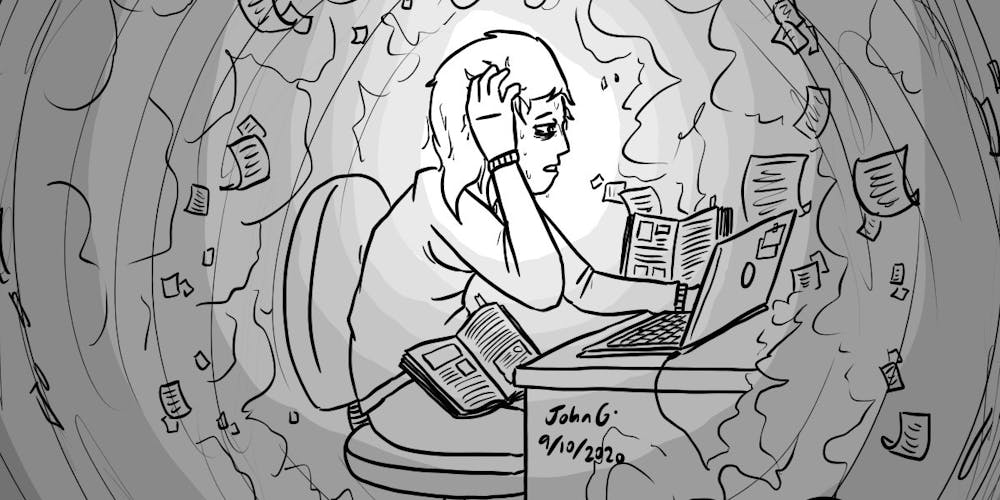We are struggling. It is hard to take online classes, to be apart from in-person teaching, books and learning resources. It is so challenging to manage adulting by ourselves, with a socially-distanced support network. And yes, although it is extremely mandatory and scientifically proven as one of the most effective COVID-19 exposure prevention methods, it gets tiring at times to wear a mask everywhere we go.
Smiles are fading, brows are furrowed, pencils are tapping, deadlines are hitting — and students are stressed. We can’t be left behind.
In all the bureaucracy and money-hoarding strategies implemented by our University and its shabby, last-minute shift to remote learning, the capacity of students to adopt the additional responsibilities posed by online classes, a shortened semester and a bottleneck of assignments has dwindled.
On top of this, we are anxious about grades and stressed about a flimsy "low pass" qualification that may penalize even the hardest workers.
So, what role does Counseling and Psychological Services play in supporting overwhelmed students in such a taut environment?
Resources provided by CAPS — free counseling, guidance and referrals — have been maintained in a remote setting, of course. The website is still running, with access to additional support links and information about provided services.
But first-years new to campus operations, international students taking courses abroad and even those with limited access to mental health resources would have to stretch themselves a long way to navigate the resources provided to them.
CAPS needs to adopt more effective and visible ways of advocating for students on campus. Just as the University once used Alert Carolina to send notifications regarding COVID clusters, so too should it find a more transparent way to promote a resource for students to understand and cope with the mental toll inflicted by UNC’s last-minute decision to move all academic operations online and shut down campus housing.
CAPS is understaffed and underfunded, and its referral system is not sufficient. Students without access to constant transportation or health care funding should not be left to sift through a website in order to find psychological help somewhere else.



